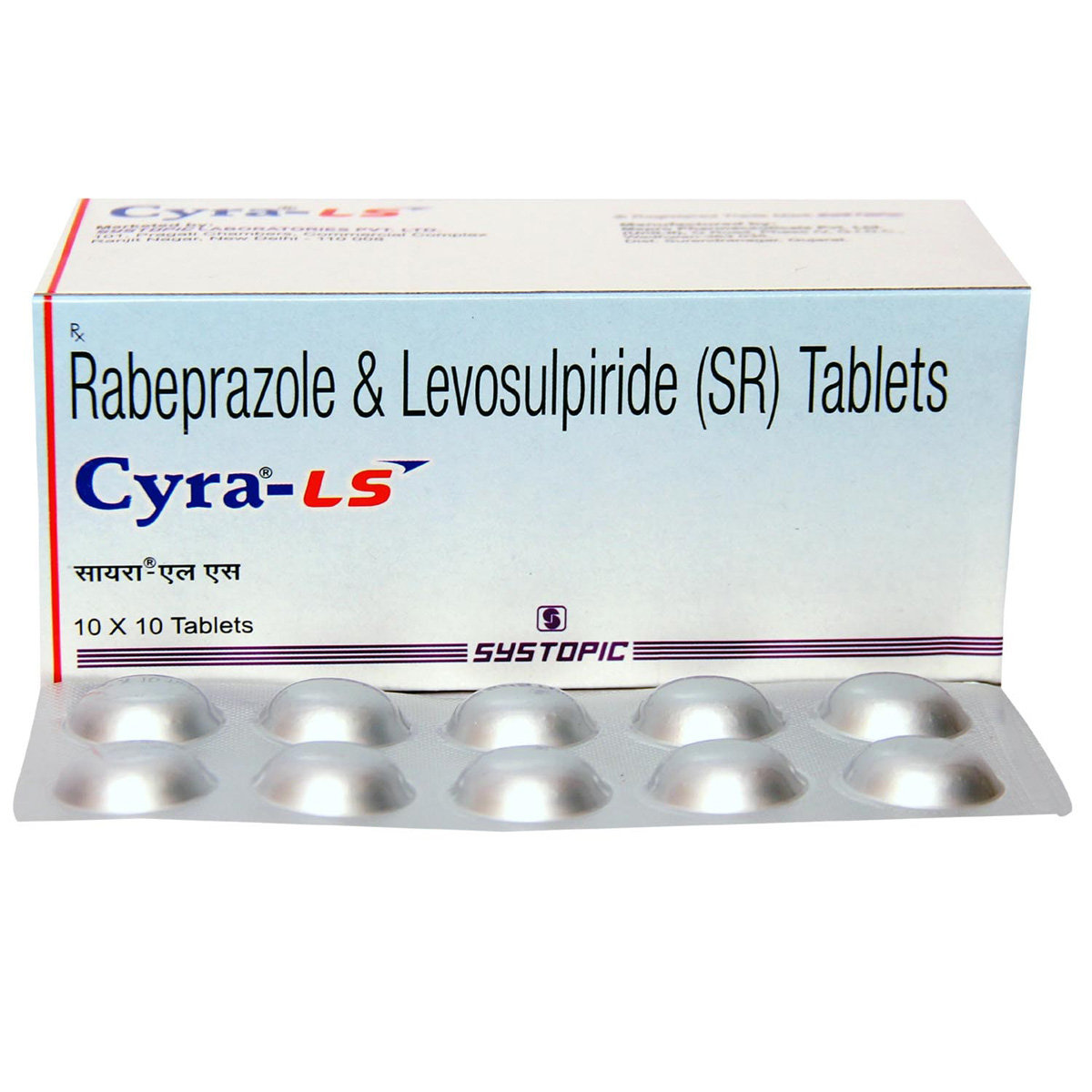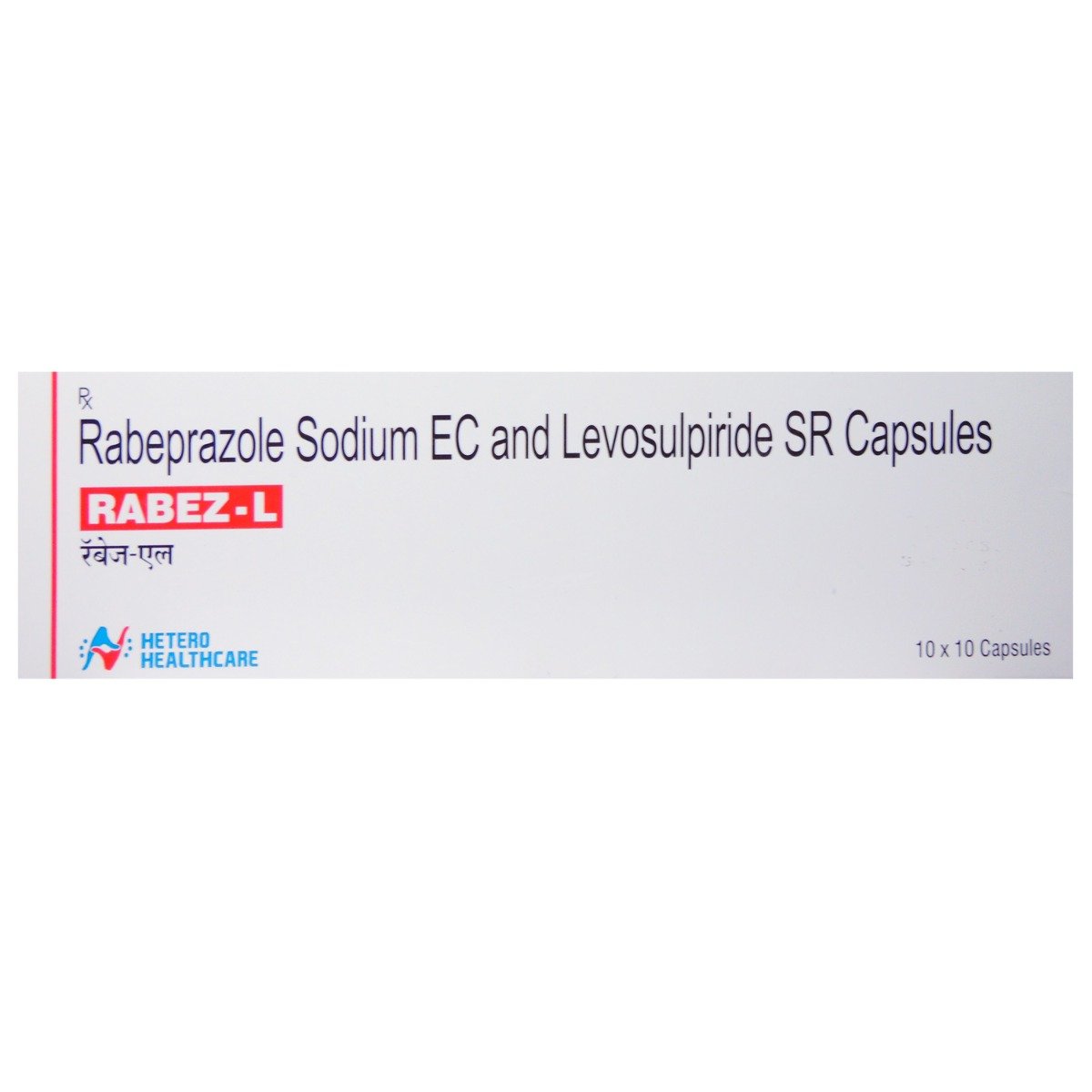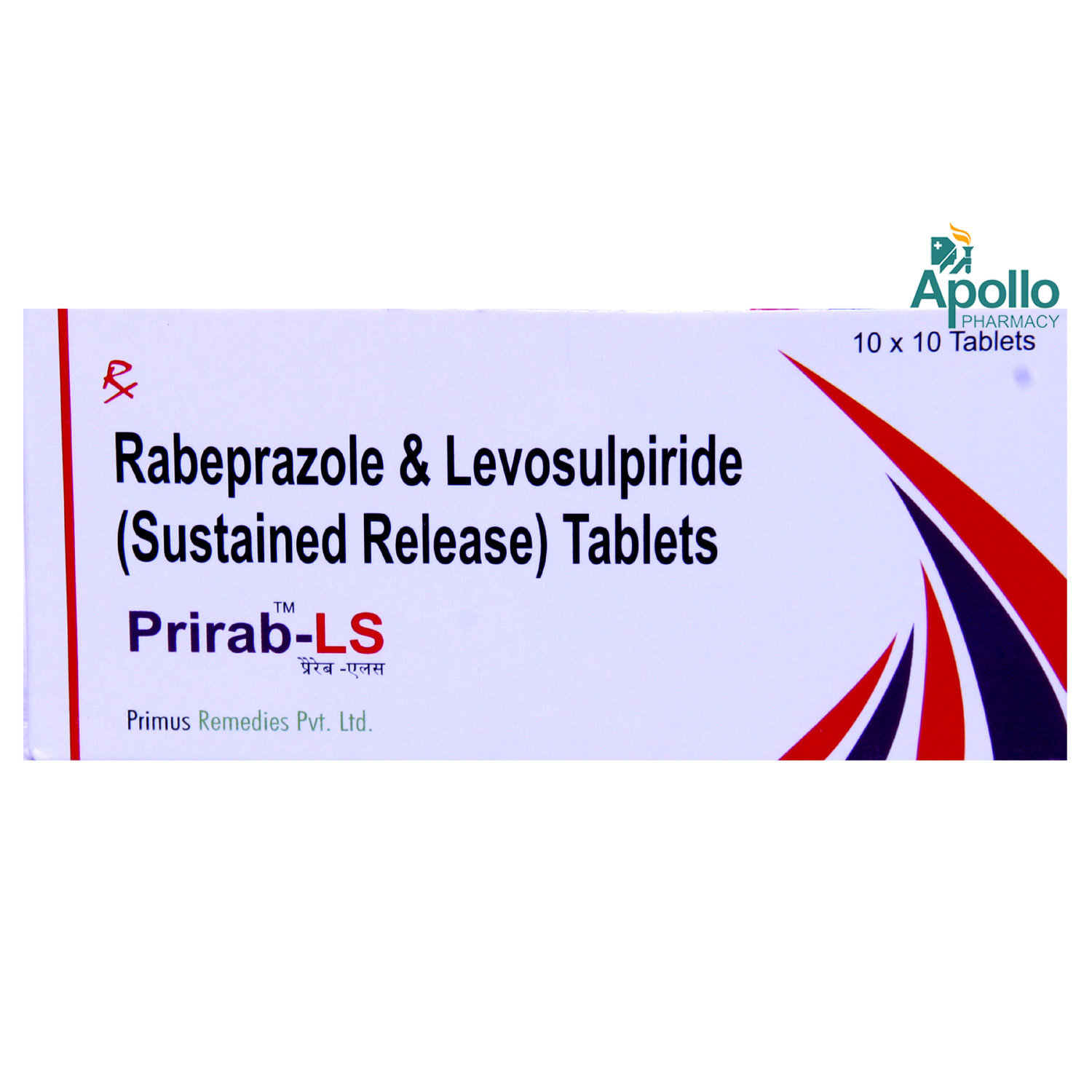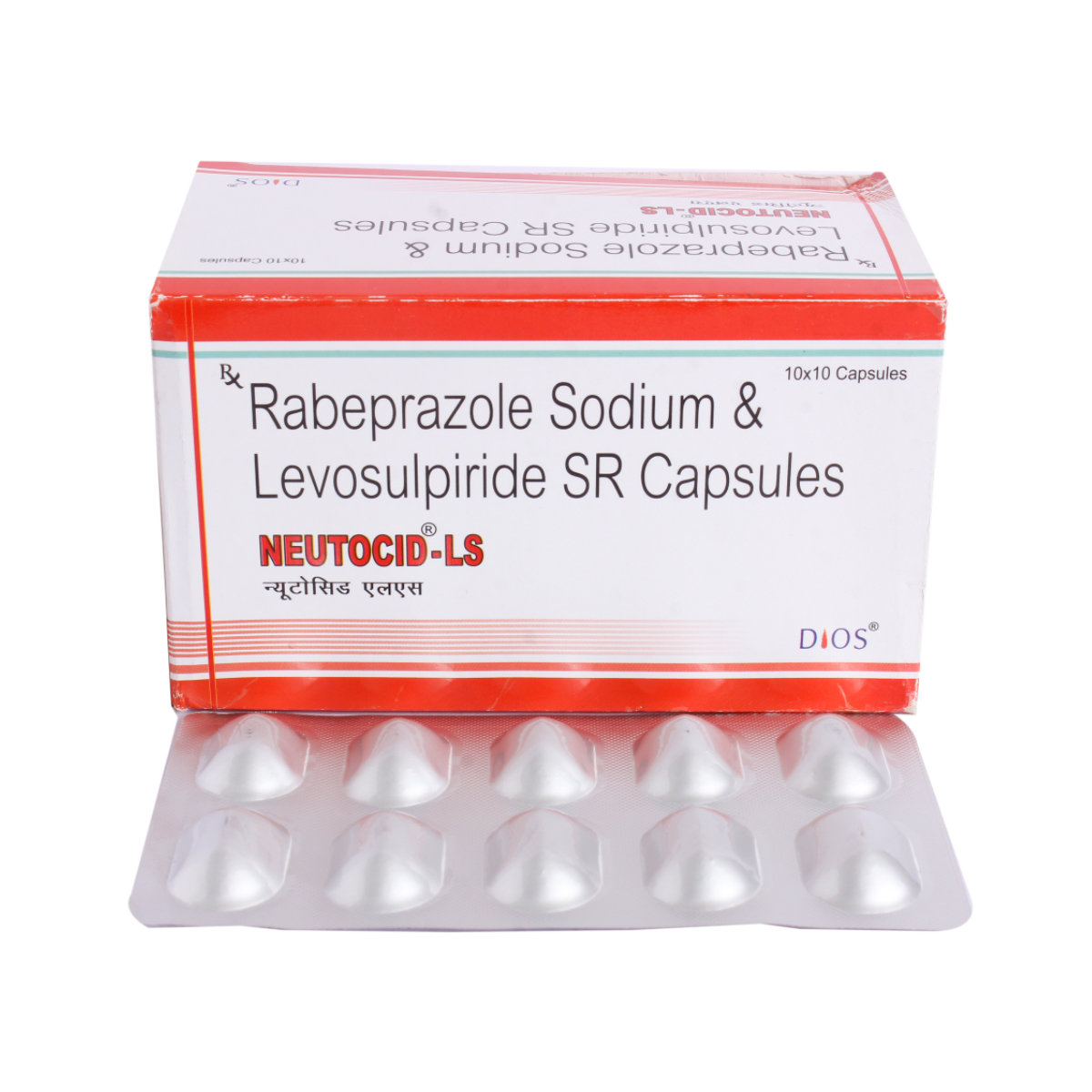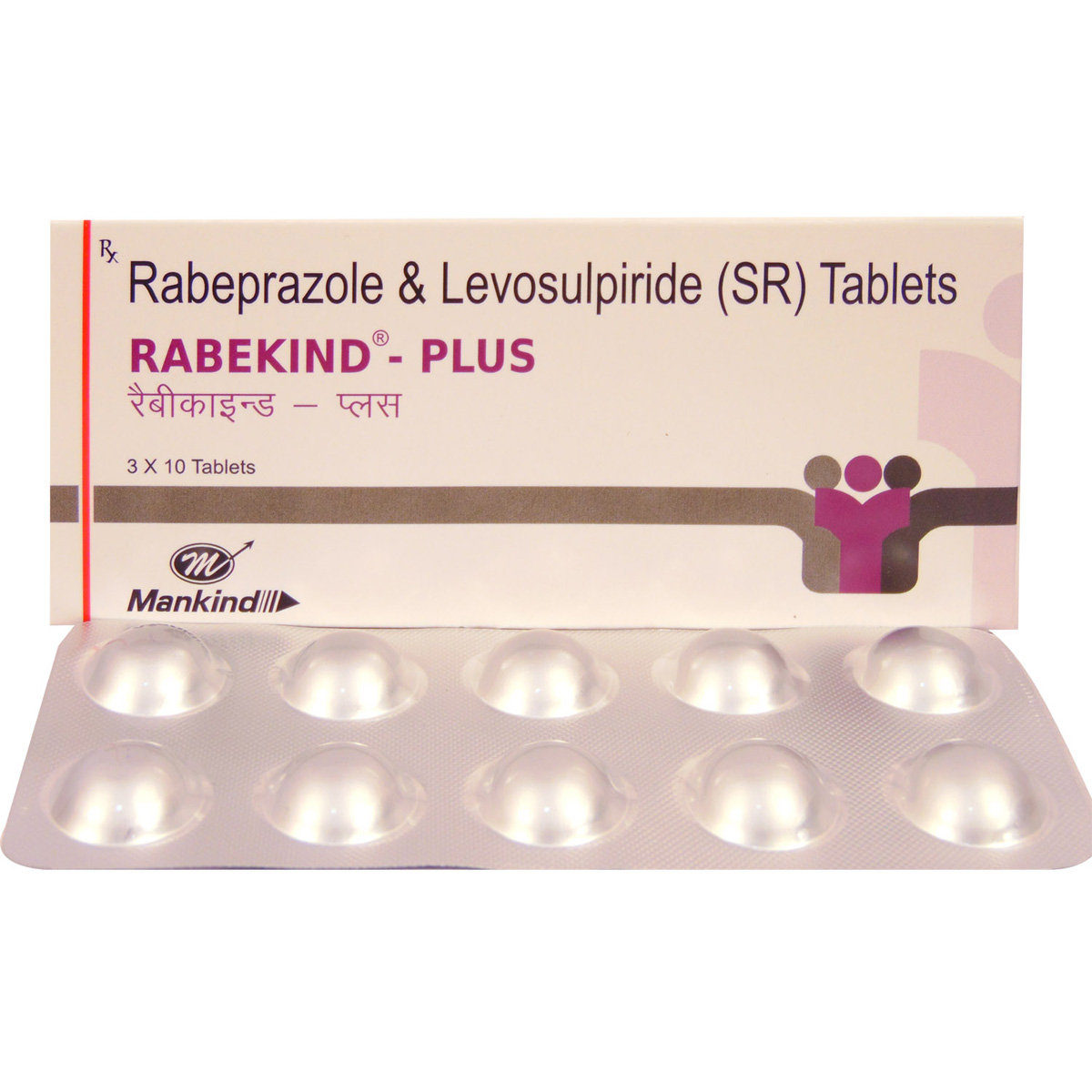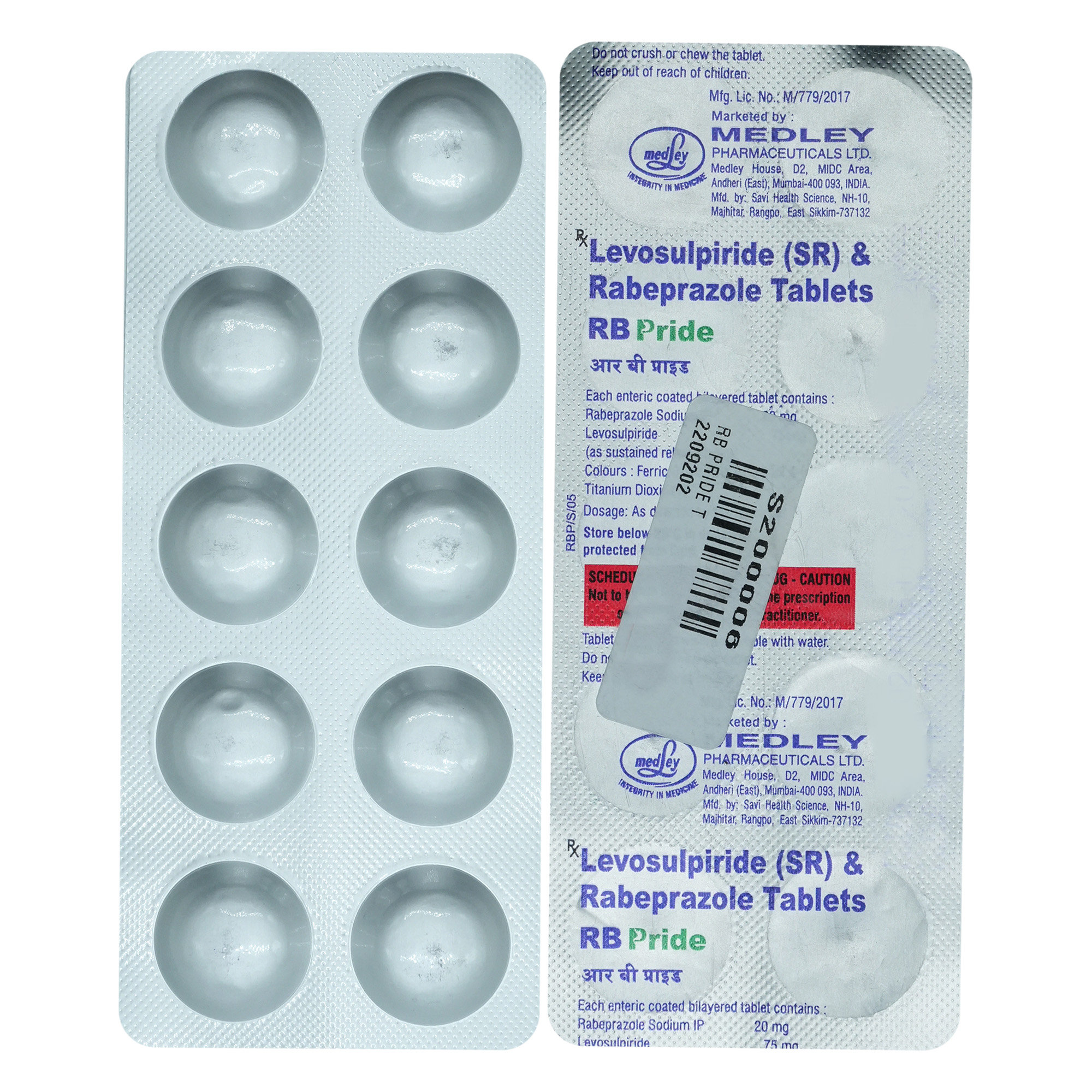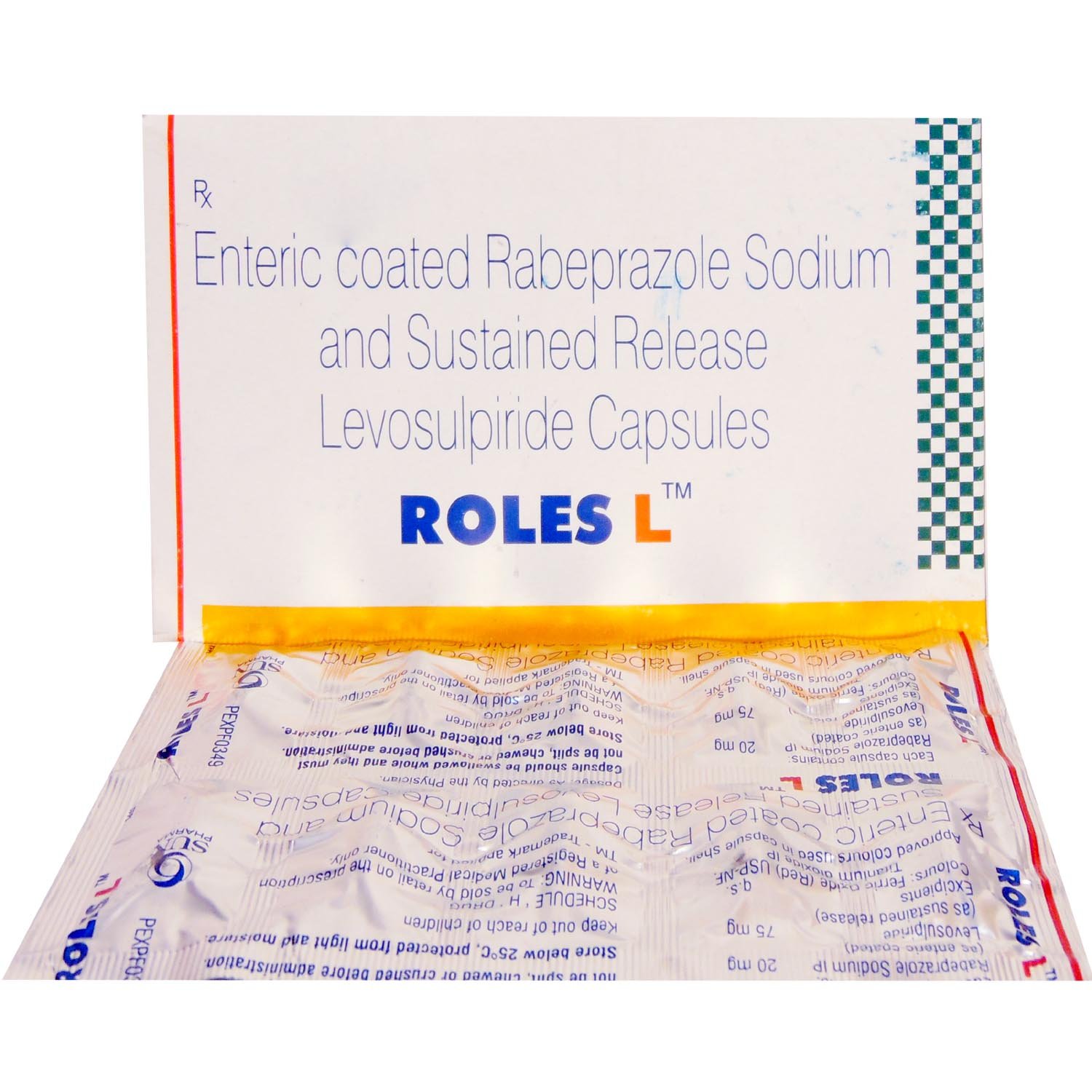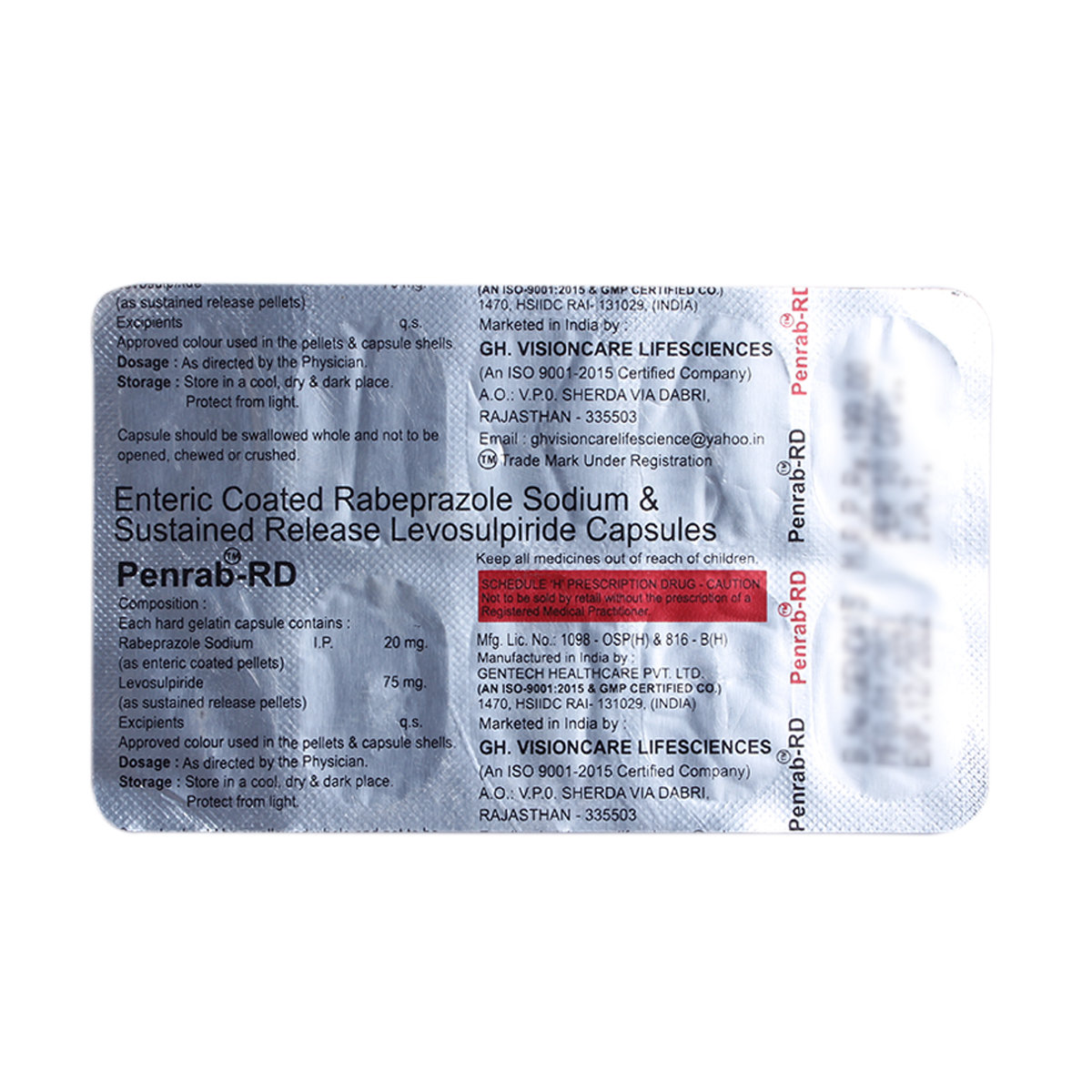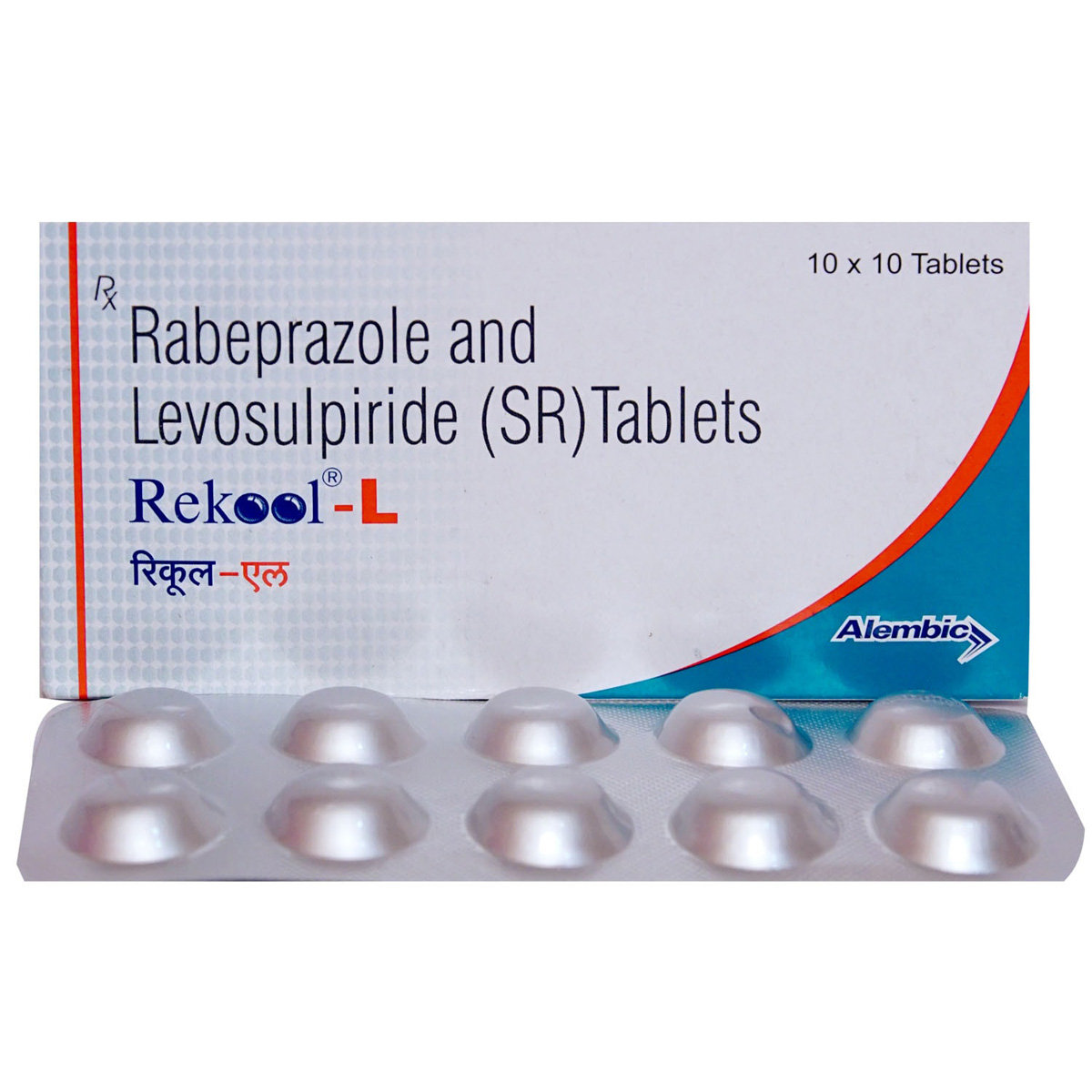- Home
- Rabon-L Tablet
Rabon-L Tablet Substitute
Rabon-L Tablet Substitute
Medicine Composition:
LEVOSULPIRIDE-75MG + RABEPRAZOLE-20MGAll Substitutes & Brand Comparisons
RX
Cyra-LS Tablet 10's
Systopic Laboratories Pvt Ltd
₹117
(₹10.53 per unit)
44% CHEAPERRX
RABEZ L TABLET
Hetero Drugs Ltd
₹129
(₹11.61 per unit)
39% CHEAPERRX
Levkool R Tablet 10's
Tycoon Pharmaceuticals Pvt Ltd
₹158
(₹14.22 per unit)
25% CHEAPERRX
Raben LS Tablet 10's
R B Pharmaceuticals
₹164
(₹14.76 per unit)
22% CHEAPERRX
Prirab LS Tablet 10's
Primus Remedies Pvt Ltd
₹179
(₹16.11 per unit)
15% CHEAPERRX
Rabivest L Tablet 10's
₹186.5
(₹16.79 per unit)
12% CHEAPERRX
Neutocid-LS Tablet 10's
Dios Lifesciences Pvt Ltd
₹191.5
(₹17.24 per unit)
9% CHEAPERRX
Rabekind-Plus Tablet 10's
Mankind Pharma Pvt Ltd
₹213
(₹19.17 per unit)
RX
Arorab-LS Tablet 10's
Aareen Healthcare Pvt Ltd
₹224
(₹20.16 per unit)
5% COSTLIERRX
Rabilast-L Tablet 10's
Zerico Lifesciences Pvt Ltd
₹226.5
(₹20.39 per unit)
6% COSTLIERRX
RB Pride Tablet 10's
Medley Pharmaceuticals Ltd
₹234
(₹21.06 per unit)
10% COSTLIERRX
Out of StockRaberin L 20/75 Tab 10'S
SAVEO HEALTHTECH PVT LTD
₹241
(₹21.69 per unit)
13% COSTLIERRX
ROLES L TABLET
₹274.5
(₹24.71 per unit)
29% COSTLIERRX
Out of StockPenrab-RD Tablet 10's
Gh Vision Care Life Sciences
₹299
(₹26.91 per unit)
40% COSTLIERRX
Rekool-L Tablet 10's
Alembic Pharmaceuticals Ltd
₹305
(₹27.45 per unit)
43% COSTLIER

When Should You Consider Switching from Rabon-L Tablet ?
Patients may explore substitutes in the following scenarios:
- High monthly cost of Rabon-L Tablet
- Non-availability in local pharmacies
- Generic recommendation by a doctor
- Side effects or better tolerability with alternatives
What to Know Before Switching
Before you switch from Rabon-L Tablet to another medicine, here are some important points to keep in mind:
Same salt, different brands:
Most substitutes contain the same active ingredient - LEVOSULPIRIDE-75MG + RABEPRAZOLE-20MG, but the fillers, coating, or manufacturing quality may vary slightly.
Consult your doctor first:
Even if the salt is the same, your doctor can confirm if the substitute is right for your condition, dosage, and health history.
Watch out for allergies or reactions:
Some people may react differently to certain brands due to inactive ingredients. If you notice any side effects, inform your doctor immediately.
Price ≠ effectiveness:
A lower-priced substitute doesn't mean it's less effective. Many generic medicines work just as well as branded ones.
Check the dosage form and strength:
Always match the substitute’s strength (e.g., 5mg, 10mg) and form (tablet, capsule, syrup) with what your doctor prescribed.
Uses
Rabon-L Tablet is used in the treatment of Gastro-oesophageal reflux disease, acidity, indigestion, heartburn, and peptic ulcers. The detailed uses of Rabon-L Tablet are as follows:
- Gastroesophageal Reflux Disease (GERD): Rabon-L Tablet reduces acid reflux and heartburn by improving stomach emptying and lowering acid production.
- Peptic & Duodenal Ulcers: Rabon-L Tablet promotes healing of ulcers by protecting the stomach lining.
- Irritable Bowel Syndrome (IBS): Rabon-L Tablet is especially effective in cases with bloating and delayed gastric emptying.
- Zollinger-Ellison Syndrome: Rabon-L Tablet manages excessive acid production due to gastrin-secreting tumours.
- Functional Dyspepsia: Rabon-L Tablet relieves symptoms like early satiety, nausea, and abdominal discomfort.
Medicinal Benefits
- Rabon-L Tablet is a combination of two drugs: Rabeprazole and Levosulpiride, used to treat acidity-related conditions.
- It helps treat gastro-oesophageal reflux disease (GERD), acidity, heartburn, Zollinger-Ellison syndrome, Helicobacter pylori infection, irritable bowel syndrome, indigestion, and duodenal and gastric ulcers.
- Rabeprazole is a proton pump inhibitor that works by blocking the enzyme responsible for producing acid, known as the gastric proton pump.
- Levosulpiride is a prokinetic agent that increases the pressure of the inferior oesophageal (food pipe) sphincter, thereby preventing the backflow of food and acid into the mouth.
- Rabon-L Tablet helps in preventing acid reflux, thereby providing relief from acidity and heartburn.
FAQs
The substitutes of Rabon-L Tablet contain the same active salt(s) - LEVOSULPIRIDE-75MG + RABEPRAZOLE-20MG. However, they may differ in price, manufacturing quality, and inactive ingredients. Speak to your doctor to find a suitable option.
Switching to a generic substitute medicine in the place of Rabon-L Tablet is often possible if it has the same salt, strength, and dosage form. But always check with your doctor before making any changes to your medication.
Generics versions of Rabon-L Tablet are typically more affordable because they don’t include the original brand's research, development, and marketing costs. They contain the same active ingredient and are approved for safety and effectiveness.
Most people don’t notice any difference. However, some may react to different fillers or coatings. If you notice any unusual symptoms after switching, consult your doctor.
Make sure the new medicine has the same active salt, strength, dosage form. Always confirm the change with your doctor or pharmacist.
Substitutes of Rabon-L Tablet meet the same safety and efficacy standards as Rabon-L Tablet , but small differences in absorption or formulation can exist. A doctor can help you choose the right one for your needs.
Yes. Substitutes of Rabon-L Tablet may vary in color, size, or shape due to differences in manufacturing and branding, but this does not affect how they work.
Yes, it’s generally safe to switch between multiple substitutes of Rabon-L Tablet if they have the same salt and strength. However, always inform your doctor so they can monitor how your body responds.
Yes, many people safely use substitutes of Rabon-L Tablet for long-term treatment. Just ensure it’s done under medical supervision.
If your symptoms stay under control or lab results remain stable, the substitute for Rabon-L Tablet is likely working well. Regular follow-ups with your doctor are important.
Absolutely. Even with the same salt, small differences can affect how your body responds when switching from Rabon-L Tablet to its substitute. Always consult your doctor before switching.
Rabon-L Tablet is used to treat gastro-oesophageal reflux disease (GERD), acidity, heartburn, Zollinger-Ellison syndrome, Helicobacter pylori infection, irritable bowel syndrome, indigestion, duodenal and gastric ulcers.
Rabon-L Tablet contains Rabeprazole and Levosulpiride. Rabeprazole works by blocking an enzyme called the gastric proton pump, which is responsible for producing acid. Levosulpiride works by increasing the pressure of the inferior oesophageal sphincter (food pipe), thereby preventing the backflow of food and acid into the mouth. Together, Rabon-L Tablet helps in providing relief from acidity.
Avoid lying down immediately after meals to prevent acid reflux. Raise the head of the bed 10-20cm by putting on a pillow so that the head and chest are above the waist. This helps in preventing acid reflux.
Rabon-L Tablet contains rabeprazole, which might increase the risk of osteoporosis (weak and brittle bones). This mainly occurs in people taking higher doses of Rabon-L Tablet for longer durations. Inform your doctor if you are at risk of osteoporosis. Your doctor may prescribe calcium and vitamin D supplements.
Dry mouth could be a side-effect of Rabon-L Tablet . Limiting caffeine intake, avoiding smoking and mouthwashes containing alcohol, drinking water regularly, and chewing sugar-free gum/candy might help stimulate saliva and thereby prevent drying of the mouth.
Do not take Rabon-L Tablet for longer durations unless prescribed by the doctor. Rabon-L Tablet might cause bone problems and hypomagnesemia on long-term treatment. Talk to your doctor if you do not find symptomatic relief despite taking Rabon-L Tablet for 2 weeks.
Rabon-L Tablet might cause irregular periods/abnormal menstruation. Consult your doctor if you notice abnormal bleeding patterns.
Avoid consuming alcohol along with Rabon-L Tablet as it could lead to increased drowsiness and elevated stomach acid production.
If you're experiencing frequent heartburn and stomach pain while taking Rabon-L Tablet , it's essential to consult with your doctor. They can assess your specific situation and provide the best course of action.
Rabon-L Tablet is typically used to treat excessive stomach acid production conditions. It's essential to consult with a healthcare professional to determine if Rabon-L Tablet is appropriate for your specific condition. They can assess your symptoms, medical history, and other factors to provide personalized guidance.
The best time to take Rabon-L Tablet depends on your doctor's specific instructions. However, a common recommendation is to take it before breakfast. This helps the medication effectively reduce stomach acid production throughout the day.
Rabon-L Tablet is more often used to treat gastrointestinal disorders. However, its use may be contraindicated in individuals with allergies to either the drug or its excipients, pregnant or breastfeeding women, those with gastrointestinal bleeding or obstruction, severe kidney or liver impairment, and individuals with certain medical conditions. Before using Rabon-L Tablet , it's essential to consult with a healthcare professional to assess your individual situation and determine if it's safe for you.
Rabon-L Tablet combines two drugs: Rabeprazole (proton pump inhibitor) and Levosulpiride (prokinetic agent).
The safety of Rabon-L Tablet during pregnancy and breastfeeding has not been fully established. If you are pregnant or breastfeeding, it's essential to discuss the risks and benefits of taking Rabon-L Tablet with your doctor.
Yes, dizziness can be a side effect of taking Rabon-L Tablet .
No definitive evidence suggests that using Rabon-L Tablet increases the risk of fractures. If you have concerns about your risk of fractures, it's best to discuss them with your doctor. They can assess your individual situation and provide appropriate advice.
Rabon-L Tablet may cause dizziness and drowsiness. Do not drive or operate machinery unless you are alert.
It's always best to follow the specific storage and disposal instructions provided on the medication packaging or by your pharmacist. If you have any questions or concerns, don't hesitate to ask your healthcare provider.
Common side effects of Rabon-L Tablet may include headache, nausea, vomiting, gas, abdominal pain, dizziness, and diarrhea. Most of these side effects do not require medical attention and will resolve gradually over time. However, you are advised to talk to your doctor if you experience these side effects persistently.
Before using this medication, you should inform your doctor about your medical history, including any ongoing medicines, to avoid potential interactions and minimize side effects.
Take the missed dose as soon as you remember unless it's almost time for your next dose. In this case, skip the missed dose and take your next dose at the regular time. Never take a double dose to make up for a missed one.
Stomach ulcers are sores that develop on the stomach and intestine lining due to erosion of the protective stomach lining. Symptoms include nausea, changes in appetite, bloody or dark stools, unexplained weight loss, vomiting, and indigestion.
Buy best Gastro Enterology products by
Abbott India Ltd
Sun Pharmaceutical Industries Ltd
Cipla Ltd
Alkem Laboratories Ltd
Mankind Pharma Pvt Ltd
Intas Pharmaceuticals Ltd
Torrent Pharmaceuticals Ltd
Lupin Ltd
Dr Reddy's Laboratories Ltd
Leeford Healthcare Ltd
Aristo Pharmaceuticals Pvt Ltd
Alembic Pharmaceuticals Ltd
La Renon Healthcare Pvt Ltd
Macleods Pharmaceuticals Ltd
Wallace Pharmaceuticals Pvt Ltd
J B Chemicals & Pharmaceuticals Ltd
Zydus Healthcare Ltd
Micro Labs Ltd
Morepen Laboratories Ltd
Zydus Cadila
Zuventus Healthcare Ltd
FDC Ltd
Fourrts India Laboratories Pvt Ltd
Tas Med India Pvt Ltd
Alniche Life Sciences Pvt Ltd
Cadila Pharmaceuticals Ltd
Sanatra Healthcare Ltd
Medishri Healthcare Pvt Ltd
Eris Life Sciences Ltd
Medley Pharmaceuticals Ltd
Signova Pharma
Elder Pharmaceuticals Ltd
Tablets India Ltd
East West Pharma India Pvt Ltd
Ajanta Pharma Ltd
Vasu Organics Pvt Ltd
Wockhardt Ltd
Emcure Pharmaceuticals Ltd
Akumentis Healthcare Ltd
Glenmark Pharmaceuticals Ltd
Blue Cross Laboratories Pvt Ltd
Biological E Ltd
Cadila Healthcare Ltd
Corona Remedies Pvt Ltd
Medgen Drugs And Laboratories Pvt Ltd
Primus Remedies Pvt Ltd
Hetero Drugs Ltd
Indoco Remedies Ltd
Ipca Laboratories Ltd
Pfizer Ltd
Systopic Laboratories Pvt Ltd
DR Johns Lab Pharma Pvt Ltd
Ozone Pharmaceuticals Ltd
Prevego Healthcare & Research Pvt Ltd
Albert David Ltd
Indchemie Health Specialities Pvt Ltd
Knoll Healthcare Pvt Ltd
Lincoln Pharmaceuticals Ltd
Biochem Pharmaceutical Industries Ltd
Intra Life Pvt Ltd
Ordain Health Care Global Pvt Ltd
Troikaa Pharmaceuticals Ltd
Eskag Pharma Pvt Ltd
Foregen Healthcare Ltd
Olcare Laboratories Pvt Ltd
Samarth Life Sciences Pvt Ltd
Shine Pharmaceuticals Ltd
Shreya Life Sciences Pvt Ltd
Hetero Healthcare Pvt Ltd
Adonis Laboratories Pvt Ltd
Capital Pharma
Chemo Healthcare Pvt Ltd
Sanzyme Pvt Ltd
Yuventis Pharmaceuticals
3M India Ltd
Alienist Pharmaceutical Pvt Ltd
Meridian Enterprises Pvt Ltd
Meyer Organics Pvt Ltd
Sinsan Pharmaceuticals Pvt Ltd
Steris Healthcare
Carey Pharma
German Remedies Ltd
Levin Life Sciences Pvt Ltd
Medwock Pharmaceuticals Pvt Ltd
Overseas Health Care Pvt Ltd
RPG Life Sciences Ltd
Saf Fermion Ltd
Dey's Medical Stores (Mfg) Ltd
Galpha Laboratories Ltd
Msn Laboratories Pvt Ltd
Obsurge Biotech Ltd
Panacea Biotec Ltd
Sargas Life Sciences Pvt Ltd
Seagull Pharmaceutical Pvt Ltd
USV Pvt Ltd
Win Medicare Ltd
Aar Ess Remedies Pvt Ltd
Comed Chemicals Ltd
Icarus Health Care Pvt Ltd
Indiabulls Pharmaceuticals Pvt Ltd

